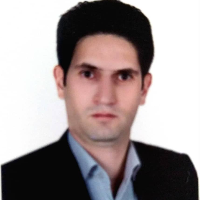Improving self-organization in the environment of virtual social networks by applying the thinking education model
Self-organization is an excellent capacity to moderate the thoughts and feelings that govern human behavior. Thinking education can provide the basis for the creation and development of self-organization in learning, motivation, religion, and friendship. The present study investigates the effect of the thinking education model on adolescents' self-organization in a virtual social network in the Soroush program.
This study is quasi-experimental, and its design is a pretest-posttest with a control group. The study's statistical population is students aged 12-15 in Asadabad city, Hamadan province, in 2019. The statistical sample of the study included 82 students who were selected through available sampling. The data collection tool was a researcher-made self-administered questionnaire with 18 items. The field experts confirmed the tool's accuracy, and its reliability was calculated by Cronbach's alpha (0.70). The participants were randomly assigned to the experimental and control groups (41 participants in each group), and then the thinking education model was performed in 6 sessions for the experimental group, 75 minutes per session. The thinking education model protocol consisted of the following components respectively: Subject of education, learner analysis, situation analysis, educational goals, teaching in two dimensions of language teaching and teaching thinking, and finally, evaluation and correction.< style="font-family:"B Nazanin"
The study's results showed that the application of the thinking education model in the experimental group promotes learning self-organization, motivation, religion, and friendship compared to the control group (P <0.050).
The results showed that designing and applying the thinking education model could improve the self-organization of learning, motivation, religion, and friendship in virtual social networks.
Keywords: self-organization, Virtual social network, Thinking education model</></>
-
Creative Drama Learning Environment: A Transformation in Developing Communication Skills in the Connected Age
Narges Yazdanfar, *
Theater, -
A Phenomenological Study of Individual, Cultural, And Familial Harms of Divorce Based on The Lived Experiences of Divorced Women
Ebrahim Fehli *,
Journal of Police Cultural Studies, Spring 2025 -
An Analysis of The Position, Opportunities and Challenges of Instructional Design in Blended Learning Environment with an Emphasis on the Professional Position of the Teacher
*, Hadise Sadeghpurmahabadi
Journal of Teacher Professional Development, Spring 2025 -
The Relationship between Committing Risky Behaviors Based on the Level of Cultural Intelligence and Social Health of Teenagers According to the Role of the Police
*, Fateme Moshfegh, Mohammad Norouzi
Journal of Police Cultural Studies, -
The Effect of a Creative Drama Environment Based on Janasen’s Constructivism Model on Problem-solving Strategies of ADHD Children
Azin Zobdeh, *, , Sadeq Rashidi
Theater, -
Development of thinking instructional design model based on Vygotsky's sociocultural theory
, Khadijeh Aliabadi *, Soghra Ebrahimi Q Avam, Saeid Poor Roustaei
Educational Psychology,





